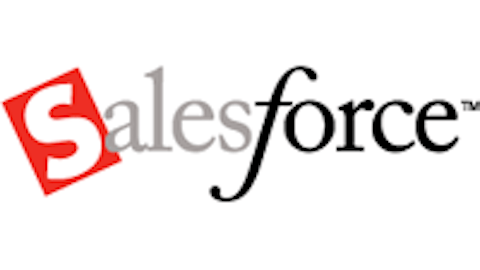Oracle Corporation (NASDAQ:ORCL), a bellwether of the tech industry, recently disappointed investors with third quarter earnings that missed analyst estimates on both the top and bottom lines. The Redwood City, Calif.-based company, which specializes in enterprise software and database management products, has been struggling to make a transition from software as a product (packaged solutions) to software as a service (cloud-based solutions), and making its maligned acquisition Sun Microsystems work. Although Oracle faces some tough challenges ahead in the coming year, have these issues derailed the company’s once promising growth prospects?

Third Quarter Earnings
For its third quarter, Oracle earned $0.52 per share, or $2.5 billion, barely up from the $0.49 per share, or $2.5 billion, it earned in the prior year quarter. Excluding one-time charges, the company earned $0.65 per share, coming in a penny short of analyst estimates. Revenue also declined 1% from $9.04 billion to $8.96 billion, also missing the $9.38 billion that analysts had expected.
Oracle Corporation (NASDAQ:ORCL)’s reported considerable weakness in its two largest business segments, software and hardware.
Software Sales Growth
Oracle’s software segment is split into three tiers – database software, middleware and applications. Database software is the lowest tier, which manages and organizes a company’s vital data. Middleware recompiles the database data into a more manageable format for software applications. Applications, the final tier, are customized for the needs of different companies to allow employees to quickly access their organized data for productivity needs.
Total software revenues rose 3.7% to $6.68 billion. By region, sales were flat in the Americas year-on-year, which comprise 52.4% of total revenue. EMEA (Europe, Middle East & Africa), which generates 30.6% of total revenue, reported a 1.5% decline. Asia, which accounts for 16.9% of total revenue, fared the worst, sliding 1.9%.
New software licenses, which include its cloud-based services, slid 1.5% from the prior year quarter to $2.34 billion, completely missing the company’s own forecast for 3.0% to 13.0% growth.
Oracle has been attempting to shift its software license business to its cloud-based platform, Fusion, but the transition has been slow and painful. Cloud revenues only came in at $238.0 million during the quarter. A report from Forrester Research claims that many customers have shown that they are content using Oracle Corporation (NASDAQ:ORCL)’s older Applications Unlimited program, which has slowed the adoption of Fusion. In rebuttal, Oracle claims that the two software suites are not cannibalizing each other, and that Fusion’s problems are simply ‘growing pains’ for a young product.
Hardware Sales Growth
Oracle’s hardware segment, which consists of hardware systems and services, reported a 16.0% decline to $1.24 billion. Hardware systems sales plunged 22.8% while hardware support revenue dropped 6.2%. By region, sales slid 25% in the Americas, 24% in EMEA and 16.0% in Asia-Pacific.
Those disappointing results have cast doubts on CEO Larry Ellison’s earlier claim that Oracle’s hardware business would halt its decline by February and start growing in May.
Ellison has been harshly criticized in the past for even getting involved in the hardware business, a result of his $7.4 billion acquisition of Sun Microsystems in 2010. Ellison’s original plan was to split Sun’s software and hardware businesses with Hewlett-Packard Company (NYSE:HPQ), acquiring the former while letting HP take the latter.
However, when HP backed out, Oracle Corporation (NASDAQ:ORCL) still decided to buy Sun, inheriting its troubled hardware business and prompting some of Oracle’s executives to claim, “we bought a dog.” The Sun acquisition also turned longtime partner HP into a competitor on the hardware front, which caused Hewlett-Packard Company (NYSE:HPQ) to sue Oracle for $4 billion in damages.
Despite all this drama, Ellison is optimistic regarding the future of the hardware business, which he claims will turnaround by the end of the first quarter in August. During the quarter, the company’s T-series servers sold the best, but were offset by losses from its higher-end M-series servers.

